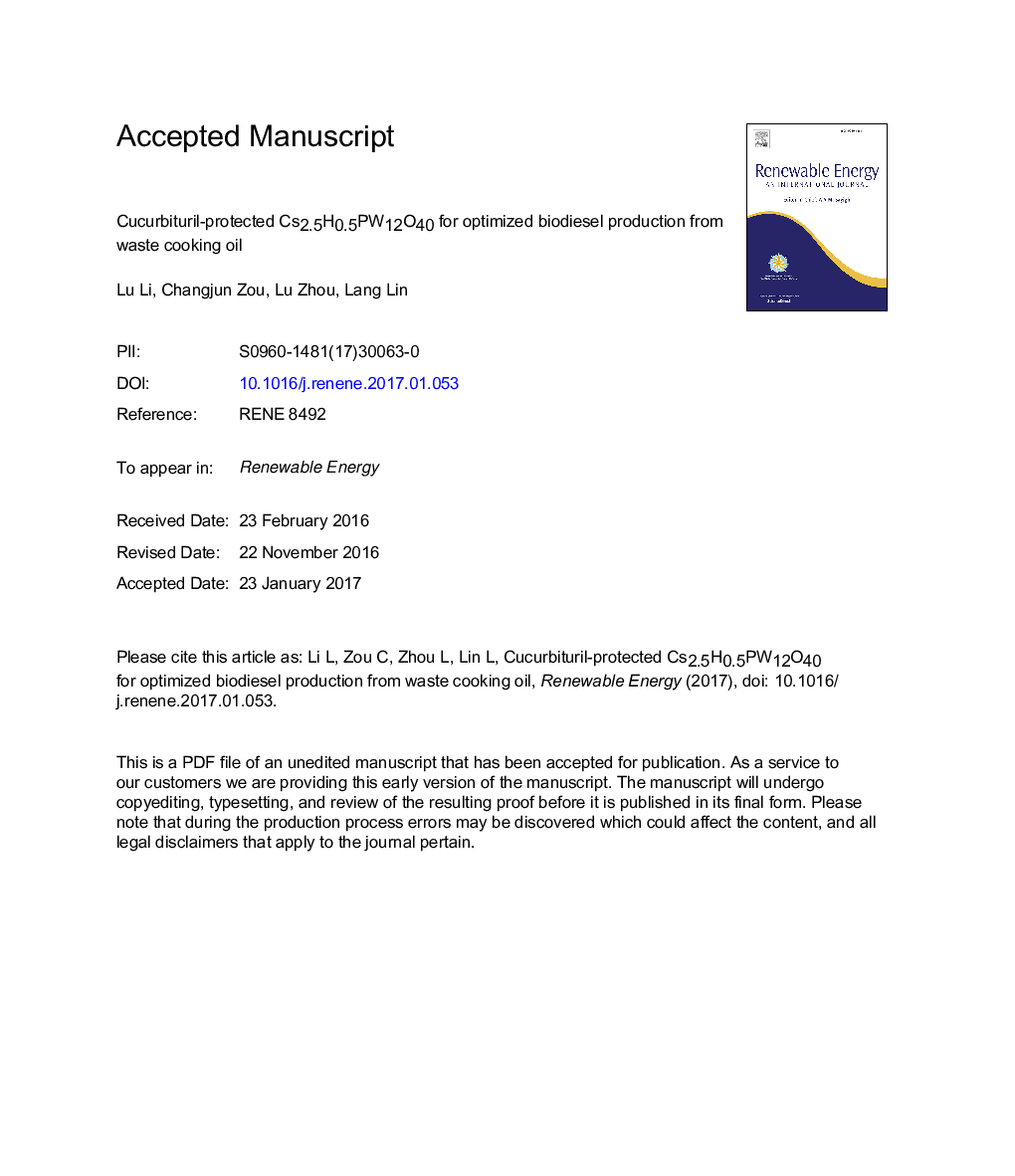| Article ID | Journal | Published Year | Pages | File Type |
|---|---|---|---|---|
| 4926692 | Renewable Energy | 2017 | 38 Pages |
Abstract
In this research, transesterification of waste cooking oil has been studied. The cucurbit[7]uril-protected Cs2.5H0.5PW12O40 (CsPW-CB[7]) is prepared as a highly efficient catalyst for the direct biodiesel production via the transesterification of waste cooking oil. The CsPW-CB[7] is characterized by X-ray diffraction, FT-IR. Besides, response surface methodology (RSM) was used to optimize the operating parameters on the conversion rate of waste cooking oil. In addition, the maximum conversion rate could reach 95.1% under the optimum experimental conditions that are catalyst of 2 wt%, methanol/oil molar ratio of 11: 1, reaction time of 150 min and temperature of 70 °C. According to the assumption of pseudo-first order reaction, the activation energy of the reaction was calculated as 36.0 kJ molâ1, indicating the reaction is easy to react. The physicochemical properties of biodiesel product could reach the ASTM D6751 standard. The results indicated that the CsPW-CB[7] catalyst showed good catalytic performance and its excellent potential application in biodiesel production. Also, based on the coded parameters, the quadratic regression model with determined coefficients was presented. In addition, the model is significant according to the ANOVA analysis and residual plots.
Keywords
Related Topics
Physical Sciences and Engineering
Energy
Renewable Energy, Sustainability and the Environment
Authors
Lu Li, Changjun Zou, Lu Zhou, Lang Lin,
